- Home
- neetha Napew
Anti - Man
Anti - Man Read online
I HAD SAVED HIM, KNOWING HE COULD DESTROY OUR WORLD.
In a world of nine billion people, it’s suicidal to bring anyone back from the dead. The android could reshape His fingers into three-molecule-thick knives that could go into a man’s skin like a miniature surgeon and heal—even resurrect. He declined to stop.
Faced with an order to “disassemble” Him, I kidnapped Him. Then He began to change —His shape, His voice, His goals.
Watching Him, I was less frightened of our pursuers than I was of what I had done. Was the final change going to be the ugly caterpillar into the lovely, colorful butterfly, or would the lovely butterfly revert into an ugly—deadly—worm?
ANTI-MAN
Dean R. Koontz
PAPERBACK LIBRARY
New York
PAPERBACK LIBRARY EDITION
First Printing: July, 1970
Copyright © 1970 by Coronet Communications, Inc.
All rights reserved
For Edward L. Ferman who helped at the start of things . . .
Paperback Library is a division of Coronet Communications, Inc. Its trademark, consisting of the words “Paperback Library” accompanied by an open book, is registered in the United States Patent Office. Coronet Communications, Inc., 315 Park Avenue South, New York, N.Y. 10010.
I
It was really too much to hope for, but we seemed to have lost them. We had jumped from Knoxville to Pierre, South Dakota, from that drab terminal to Bismark, North Dakota, and on to San Francisco. In the City of the Sun, we had walked unknown with our hands in our pockets and our faces open to the sky, feeling less like fugitives than we had any right to, grabbing a day of much needed rest and a moment to collect our thoughts before dashing on. We had spent the day buying gear for the last leg of our escape, eating our first decent meal in two days, and sitting through some atrocious toto-experience film just because it was dark in the theater and, therefore, safer for the two most wanted men in the world. At midnight, we had bought tickets and boarded the next Pole-crossing rocket flight that would take us over Alaska. As the high-altitude craft flashed above Northern California and into Oregon, I took Him into the bathroom at the end of the First Class compartment (fugitives should always travel First Class, for the rich are always too concerned with the way they look to notice anyone else) and locked the door. “Take off your coat and shirt,” I told Him. “I want to see that wound.”
“I tell you, it’s hardly anything at all.” He had been telling me that for a day and a half, stalling me, keeping me from looking at it. Right from the beginning, He had been somewhat indecipherable. Part of His personality was a closed door beyond which might lay a room or a mansion. I could not tell which. Now, again indecipherable, He seemed willing to risk infection, blood poisoning, maybe even death rather than let me examine the wound! But I had seen the World Authority copper shoot in the Pierre terminal, and I wasn’t going to let Him go until I had given Him some sort of care. I had seen the blood, lots of blood, fountain up from His shoulder when the pin had torn into Him.
Him. Not much of a name, but what do you call the first android? Adam? No, too trite. Anyone who would have seriously suggested something like that would have been drummed right out of the laboratories, wrapped in a coat of tar and chicken pluckings. And would have deserved every bit of it. So, then, how about Harry? Or George? Leo? Sam? Actually, He was a scientific milestone of the first order, one of Man’s most brilliant achievements. Somehow, naming a milestone Sam did not seem right to any of us. I had a dog once that I had never called anything but Dog, and I guess the situation with Him was much the same. The dog was totally doggy, everything a dog should be, the archetype of all canines, an oddly true stereotype of Man’s Best Friend. He could hold no other name but Dog. To have called him Prince or Rover or Blackie would have been a gross indignity. And our android, flawless as a hydroponics apple, was the archetype, so it seemed, of Man. He: a fitting title.
“You’ve been putting me off now for—“ I tried to argue.
“Don’t worry about it,” He said, His eyes blue-white and penetrating. It had always been His eyes that had upset the senators who came to investigate the project as a publicity boost for their sagging political reputations. Later, they would remember other peculiarities about Him and begin to question those too, but it always started with His eyes. Imagine a sky reflected blearily in a heavily-frosted pane of milk glass. Cut out two circles of that rimed blue and paste them in two globes of veinless white marble as alabaster-like as the skin of a Greek statue. Those were His eyes. There was no denying them, no escaping. They gleamed like ice in the sun, a droplet of mercury mirroring the ocean.
“Strip anyway,” I said. He knew I was stubborn. Everyone that knew me could attest to that. “I want to see it. I’m the doctor around here.”
“Not any longer.”
“I can resign from society without giving up my degree and skills. Don’t pride yourself that I would cancel out all my medical interests, hopes and dreams just for you, boy. Now get that coat and shirt off!” It felt good to be forceful after letting Him derail me so many times before. Funny that I should be considered the terror of interns for eight years, the scowling, black-eyed dragon who ate young doctors whole if they so much as appeared with wrinkled whites for duty, and yet allow myself to be put off by this non-man so easily. Wasn’t I the same doctor whose nurse, working the same floor and duty shift with him, arrived half an hour early and left half an hour late rather than forget to prepare or finish something? Yet I must wrangle with this Adam for the simple purpose of perhaps saving His arm from gangrene. Perhaps, I told myself, it was because we were running, because I was a criminal and afraid. I had set up a new life style for myself, and the whorls of its pattern had rocked my self-confidence. That would have to change. What was I without my bluster? My towering rage? I scowled the intern-paralyzing scowl. “Hurry up!”
When it was put that bluntly, a severe command, He obeyed. He always obeyed commands. He was almost the perfect android. There had just been one incident when He had refused to obey a command, and that had been the same incident that had revealed the fact that He was developing abilities far beyond any we had anticipated. Considering the fact that World Authority research administrators anticipate everything (or so they proudly proclaim at every opportunity), the discovery shook up quite a few people. Quite a few of the wrong people.
I had been with Him that day on the ground floor of the testing lab, working on analysis of His reflex pattern (which had just then begun to show an extraordinary rapidity, especially in the areas of heat and light tropism) when the explosion had rocked the research complex. The floor trembled, windows rattled, plaster dust sifted down onto us. I didn’t think about Him or leaving Him alone, but I grabbed my bag and ran, following the intercom directions to the sector of the disaster.
I worked for two hours in the smoking ruins, trying to do preliminary patchwork on the dying bodies-trying to convince myself that they still had a chance-while we waited for the base and the town ambulances to return from their agonizingly slow trips to the local hospital. When I had seen the animated form of a man I had earlier left for dead—damn dead!—under a crushing pile of debris, I thought I had finally flipped out of rational thought ways. Then I began to see others, six in all, men certainly dead only a short time before. He was doing it. He. I became aware of the military standing around, almost every important officer on the base and enough MPs to make a war movie. They were ordering Him to stop reviving people. It should have been that simple. Command and obedience. Instead, He wouldn’t listen to them. He repeatedly disobeyed. Finally, they shot Him with narcodarts and put Him on ice until they could decide what was to be done.
Under the curr
ent social mores, it was perfectly correct and noble to keep someone from suffering or dying prematurely. The operative word there is “prematurely.” In a world of nine billion, it was taboo— and suicidal—to bring anyone back from the dead. The ranks of the living, God knew, were almost more than the planet could bear. The government had successfully discredited the Crionics Association, had squashed all possibilities of producing Mercer Serum to regress the effects of aging. Here was a new threat every bit as frightening and impossible as anything they had faced before.
They talked to Him, explained to Him what disaster this could bring into the world. They examined His fingers and watched as He demonstrated His ability to reshape His hands into flesh scalpels, thin His fingers into three-molecule-thickness knives that could penetrate another man’s skin, go into him and work like a miniature surgeon. They were horrified by the possible applications of such a talent. Try as they might, however, they could not convey their horror to Him. He had been given a mind freer than any mind in history. Where a man rarely uses a third of his brain, He used nearly a hundred percent of His. Completely unshackled as He was, He held true to what He had deduced as the highest values of existence. One of these was to prolong human life as long as possible, as healthfully as possible. Since He refused to let men die when He could delve into them and correct or heal them with His magic fingers, let the strange time-reversal touch draw together their deteriorating flesh, He was a menace to World Authority. Since He could get into parts of the liver or kidneys where no mortal surgeon could ever reach, delve into the alveoli of the lungs and scrape out the cancer cell-by-goddamned-cell, He could not be allowed to exist. We had given Him a conscience, and He had given Himself new systems that enabled Him to reshape His hands. We had given Him a complex human-type brain that was almost totally operative, and He had begun to surpass Man in a speeded evolution consciously wrought. Given all that we knew about Him, all we had built into Him, we should have expected something like this. But we had not. And now the panic began.
It was decided by the project directors, who sit behind large desks with nothing to do but decide things they know absolutely nothing about, to junk the project and disassemble—disassemble: that’s just the word the idiots used!—the first android, partly because of His ability to increase Man’s lifespan (after scientists had been working frantically to hold it down to eighty-five, after World Authority Secret Police had liquidated countless researchers who were trying to lick the immortality secret on the sly in private laboratories), and mostly because it was frightening for the military to face a superhuman who could evolve Himself, who could adapt His body, given sufficient time, to the optimum efficiency. They saw Him as a potential threat, not as a tool by which men could learn and grow. They didn’t even want to know how He was able to restructure Himself. They just wanted to “disassemble” as completely and swiftly as possible, striking all knowledge of the project from the records.
That same night, I kidnapped Him.
Don’t ask my why. If we had to explain ourselves, life would be one constant flow of words, and still the angels would shake their heads in dissatisfaction. I guess it had to do with seeing Him revive men I had left for dead. That shakes a physician, believe me. I just could not allow those marvelous hands or the mind that made them to be broken down into pseudo-flesh components, smashed and burned in modern witchcraft. It was as if Picasso had been standing by when the drunken SS troops destroyed priceless paintings on Paris museum walls with the points of their bayonets. What was there to do but act?
I went to the lab that night, woke Him, told Him the situation, and left with Him. I had the keys to the lab, keys to His quarters, and the guards thought nothing of my coming and going. They thought nothing of me taking Him with me, for they had never seen Him, had no way of knowing He was more than just another doctor or technician. The laboratory remained peaceful. Until the next morning.
That had been a week ago. We had been running ever since.
Fast.
Now, in the bathroom of the world-circling commercial rocket miles above the western edge of the old United States, He removed His shirt and stood before me, a magnificent specimen, all muscle and no fat He had developed a new tissue-building process, He told me, by which all food material not used for energy was converted into a new sort of muscle fiber which dissolved as easily as fat when needed to produce energy, though the body- did not have to suffer the burden of useless tissue when it was not needed. The wound on His right shoulder was an inch or so deep and three to four inches long. It had stopped bleeding, though no scab or clotting seemed to have formed. I guess He stopped the blood, though I don’t know exactly how.
“It’ll need stitches,” I said, spreading the sides of it and surveying the torn flesh. It wasn’t pretty at all, and it had a faintly bluish tinge that I could not identify except as a bruise, which it was not. “I can do a rough stitching with what I have in my bag, but-“
“No,” He said. “I’m completing new systems.”
“So?”
“I’ll be able to speed heal myself in another half hour.”
“You serious?” Sometimes I am exceedingly dense.
“That’s why I said you did not have to bother.”
I swallowed, let the wound go. The flesh snapped back into place as if it were made of rubber. “I see.”
He put His arm on my shoulder, and we had quite suddenly exchanged roles so that He was the father image, I the son. Again I wondered how the terror of the interns had come to this low point. There was paternal concern in His stabbing blue eyes, a faint, anxious smile playing about His thin, red lips. “I still need you, Jacob. I’ll always need someone to talk to, someone who understands me. You’re such a part of me now that our relationship can never cease to be a vibrant one.”
“Well,” I said, avoiding His eyes, “let’s get back to the debarking hold. It’ll soon be time to make our drop, and we don’t want to miss that.”
We left the bathroom and walked the length of the main passenger compartment where two hundred travelers read magazines or sipped one of their three allotted drinks, or puffed their allotted joint of pot, or even napped. Oh, yes, or watched Mason Chambers on their individual Comscreens; The famous muck-raker leaned toward his audience, his thin cap of gray-black hair threatening to part and bare his carefully concealed baldness, and said: “Just who does Secretary Libermann think we are—cretins? We cannot be convinced that the World Authority Police cannot capture the android and the infamous Dr. Kennelmen. With all of the facilities available to the police, such a thing isn’t feasible. No, dear viewers, it is something else—something more sinister. Conjecture this, if you will: The World Authority has discovered something about the android that makes it the most important find of the century, something so valuable that no price can be placed on it. Something the Council would like to keep to itself and its own, to the privileged of this world. By staging this false escape, proclaiming the android dangerous and killing it on sight, they will impress on the public the fact that the research on androids has been abandoned. They will be free to continue it secretly to reap the benefits themselves!” He smiled triumphantly and looked at his notes. He was tough on everyone, even the sacrosanct Council. There would be a lot of lights burning in the Capitol tonight as the best minds in the government tried to find some way to silence Mason Chambers. Too bad the old boy was on the wrong track. He was right about the marvelous discovery, the value of the century, but that was as far as he carried it correctly.
The length of our walk down the main compartment, I waited tensely for someone to leap and shout, “That’s them!” But no one did. We stepped through the open hatch into the debarking chamber and breathed a little easier. The officer on duty was a slim, dark-haired man in his early thirties. He had a long nose, separating slow, heavy-lidded eyes that gave him a slightly saurian and very stupid look. He sat reading a low-quality papsheet and puffing on a cigare
tte, letting the smoke leak out of a tiny hole at the edge of his mouth. It was almost impossible that he could be ignorant of our presence, but he studied the sheet intensely and pretended we were not there. At last, I said, “We’ll be disembarking at Cantwell, Alaska.”
He looked up reluctantly and folded the papsheet. “That’s a helluva place.” He shivered and grimaced. “Had a duty station with the airline there for two months once. Cold. Snow. Wind like you wouldn’t believe. Threatened to quit, so they transferred me.”
“We have relatives there,” I said, trying to sound as natural as I could. I am not the greatest thespian to walk the boards since Burton, believe me. My feet freeze, and my head turns to mud when I have to speak to a group of interns. Perhaps that’s why I am so tough and hard-boiled around them: because they scare me. Despite my shyness, I had been surprised these last few days how easily I could fool people when my life was staked on pulling the wool over their eyes. Necessity may be the mother of invention, but naked fear was the bitch that gave birth to my coolness.
“Ticket?” He looked us over thoroughly while I fumbled for the two yellow pieces of paper, the cigarette bobbling in his mouth, the ash dangerously long. I was afraid that somewhere in his simple brain-box two synapses would flop open, and he would connect pictures he had seen in the papsheet with the two rumpled men standing before him. Over the week He and I had been playing cat and mouse with the World Authority, running and running like mechanical wind-up toys, trying to gain time for Him to develop Himself to the point where He wouldn’t have to run, our pictures and descriptions had graced the front pages of every papsheet in the world at least six out of the seven days. Here we were spotted in Lisbon, here in Acapulco, here in New York City. Luckily, the debarking officer on this ship seemed the type to skip the news sections and dwell on the gossip pages and the comics. For the first time in my life, I thanked the powers that be for anti-intellectualism.

 Zero City
Zero City Freedom Omnibus
Freedom Omnibus ACrucible of Time
ACrucible of Time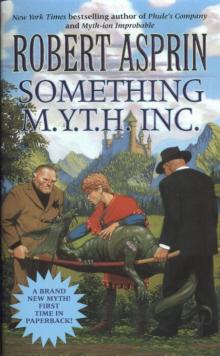 Something MYTH Inc
Something MYTH Inc Forbidden Land
Forbidden Land Corridor of Storms
Corridor of Storms The Peytabee Omnibus
The Peytabee Omnibus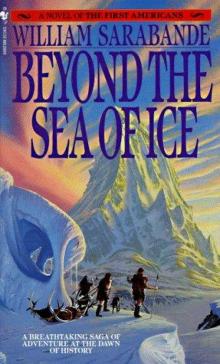 Beyond the Sea of Ice
Beyond the Sea of Ice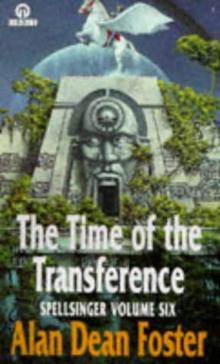 The Time Of The Transferance
The Time Of The Transferance EarthBlood
EarthBlood The Lexal Affair
The Lexal Affair The Web
The Web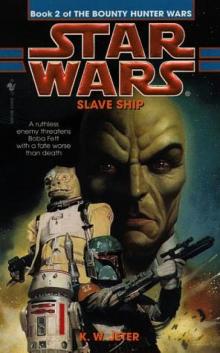 Slave Ship
Slave Ship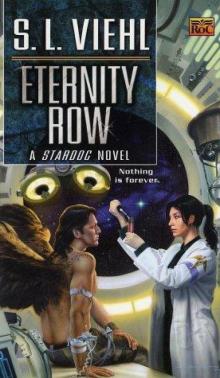 Eternity Row
Eternity Row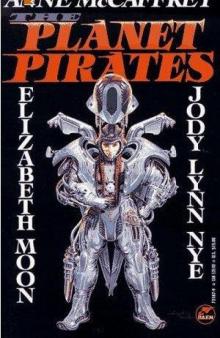 Planet Pirates Omnibus
Planet Pirates Omnibus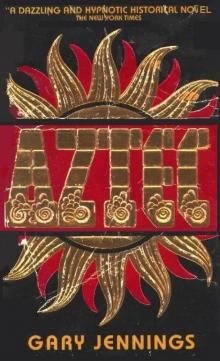 Aztec
Aztec The Awakening
The Awakening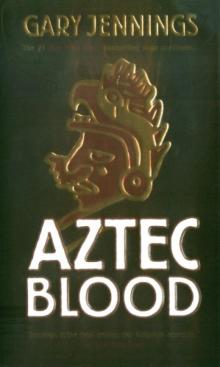 Aztec Blood
Aztec Blood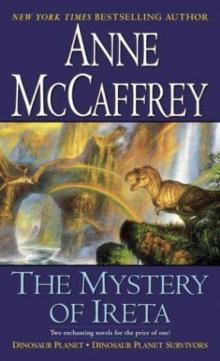 The Mystery of Ireta Omnibus
The Mystery of Ireta Omnibus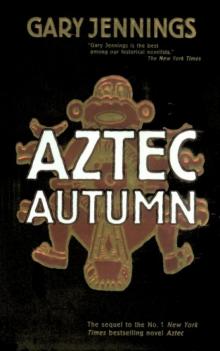 Aztec Autumn
Aztec Autumn The Savage Horde
The Savage Horde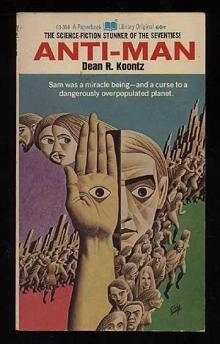 Anti - Man
Anti - Man Deep Trek
Deep Trek Starfall
Starfall The Paths Of The Perambulator
The Paths Of The Perambulator Fool's Fate
Fool's Fate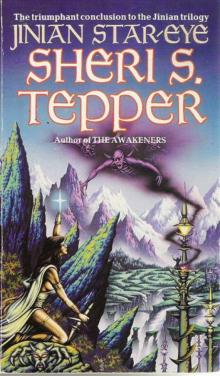 Jinian Stareye
Jinian Stareye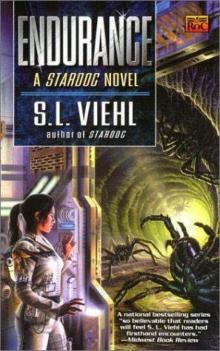 Endurance
Endurance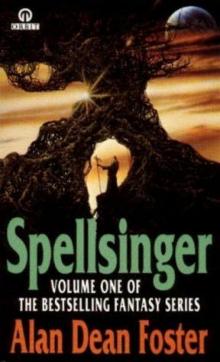 Spellsinger
Spellsinger Hybrids
Hybrids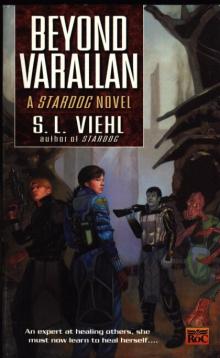 Beyond Varallan
Beyond Varallan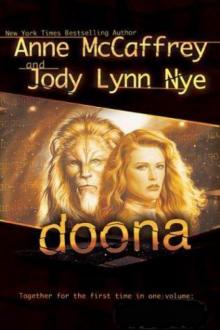 Doona Trilogy Omnibus
Doona Trilogy Omnibus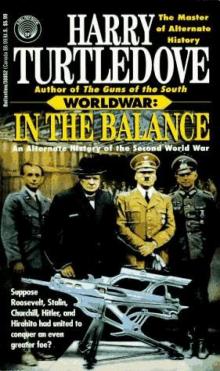 In th Balance
In th Balance Planerbound
Planerbound The Nightmare begins
The Nightmare begins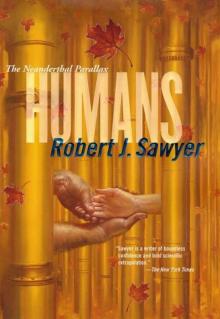 Humans
Humans Son Of Spellsinger
Son Of Spellsinger